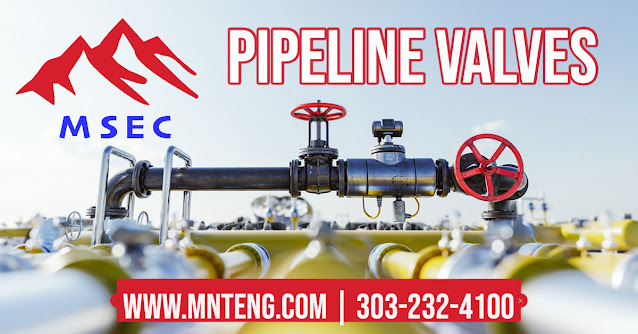- Contact Us
- Call Us
- Menu

The petroleum and natural gas industries rely significantly on pipeline infrastructure for most of their operations, from refining to distribution. Pipeline infrastructure and reliable control systems are vital to the sector’s success. Any systemic faults or gaps could result in significant losses, hazardous leaks, and even environmental catastrophes.
Industrial valves play a critical role in the safe operation of oil and gas pipelines. They are responsible for flow regulation and ensuring the integrity of supply lines, among other essential functions. The following is a guide to the many industrial valves recommended for the oil and gas industry to grasp their functionality and applications better.
Globe Valves regulate and control the flow of liquid, many times in systems that require precise flow control. Additionally, they are suitable for shutoff but are typically more expensive than gate valves.
Gate Valves are the most often encountered form of valve. They are used to initiate and terminate the flow of liquid. In actuality, these valves are either completely open or entirely closed. These are excellent shutdown valves. Gate valves are available in various styles to suit a variety of applications.
Butterfly Valves halt or start the flow, as well as regulate it. These valves are tiny and lightweight, needing less space than valves performing similar functions.
A Ball Valve is a quarter-turn valve utilized in shutoff applications. The valve controls the flow of fluid employing an integrated ball that rotates within the valve body. Ball valves are the industry standard for on-off applications because they are lighter and compact than gate valves. There are two primary designs: floating and trunnion (side or top entry)
Check Valves are responsible for preventing backflow in a pipeline system. When fluid flows through a line, it opens a check valve; however, when the flow reverses, the valve closes.
Relief Valves are employed to safeguard a pipeline system from damage caused by high-pressure events or vacuums. The valves release the pressure to a preset point; therefore, it is not a full release of pipeline pressure. There are various types of relief valves for multiple applications.
Pinch valves are linear motion valves used for throttling and shutoff in piping systems that handle solids, slurries, and thick fluids. A pinch valve regulates the flow by the use of a pinch tube.
Needle Valves are similar in design to globe valves, with the primary distinction being the sharp needle that allows for precise flow control.
MSEC, Inc., founded in 1978, is a leading distributor of pipeline valves headquartered in Golden, Colorado, and sells throughout the US.
For over 40 years, MSEC supported customers with application, design, product start-up assistance, product service training, and support. MSEC partners with the most recognized and innovative valve manufacturers in the market today.